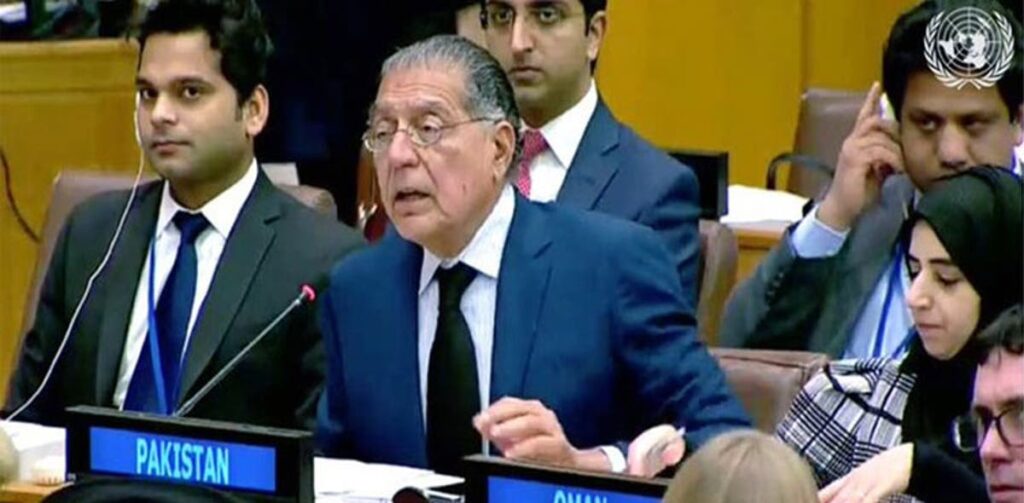Islamabad,
Pakistan on Monday reaffirmed its opposition to India’s longstanding demand for a permanent seat on the UN Security Council, saying the country does not qualify for a seat on the 5-member body.
One country, most insistent on #SC membership, has proclivity for use & threat of use of force;fomented terrorism across our region; violated #UNSC resolutions; targets innocent lives on #LoC.This has no qualification for #SC, permanent or even non-permanent membership:Amb Akram pic.twitter.com/w0eVxcFB5F
— Permanent Mission of Pakistan to the UN (@PakistanUN_NY) November 17, 2020
India along with Brazil, Germany and Japan has been campaigning for a permeant UNSC membership for some time now.
Speaking to the UN General Assembly, Islamabad’s Permanent Representative, Ambassador Munir Akram, in an apparent reference to India, said one country has waged 20 wars since independence and fomented terrorism and instability across the region, especially in Pakistan.
“It [India] stands in violation of UNSC resolutions in occupied Kashmir,” Akram said, adding that it had deployed 900,000 troops to crush the legitimate freedom struggle of the people of Kashmir. In addition, settlers from outside Jammu and Kashmir were being brought in to transform the region’s demography, he said.
“It threatens aggression against Pakistan and resorts to daily artillery and small arms fire targeting innocent civilians on our side of the Line of Control (LoC) in Jammu and Kashmir.
“This country has no qualification for a UNSC membership permanent or even non-permanent,” the Pakistani envoy added.
Full-scale negotiations to reform the council began in the General Assembly in February 2009 on several key areas. These include the question of veto, regional representation, membership, the working methods of the council and its relationship with the GA.
Despite a general agreement on enlarging the council, member states remain sharply divided over the details.
The G-4 countries have shown no flexibility in their campaign to expand the council by 10 seats, with six additional permanent and four non-permanent members.
The UNSC currently comprises five permanent members Britain, China, France, Russia, and the United States and 10 non-permanent members.
In his remarks, Akram said the UfC’s proposal reflected the most suitable basis for an agreement on comprehensive reforms. “If it is approved, it will obtain the largest possible support in the GA and the essential ratification of all the five permanent members,” he said.
The UfC proposal, he said, was also flexible and through variable arrangements, could accommodate the aspirations and interests of a majority of the UN membership, including African and other regional groups such as the Arab Group and the Organization of Islamic Cooperation (OIC).
“The UfC looks at Africa’s collective desire for representation differently; its absence is a historical injustice. Africa is seeking a larger number of non-permanent and two empowered permanent seats for the continent.
“The UfC is prepared to explore with the African Group how their regional approach could be adapted to enable all regions to be able to select their own candidates for membership in an expanded Security Council.”
Ambassador Akram added: “The UNSC reform must be part of a broader revival of the multilateral system as it was conceived under the Charter.
“At the same time, the balance between the council and the GA, the Economic and Social Council (ECOSOC) and other UN organs must be restored to reinvigorate the entire multilateral system,” he said.



